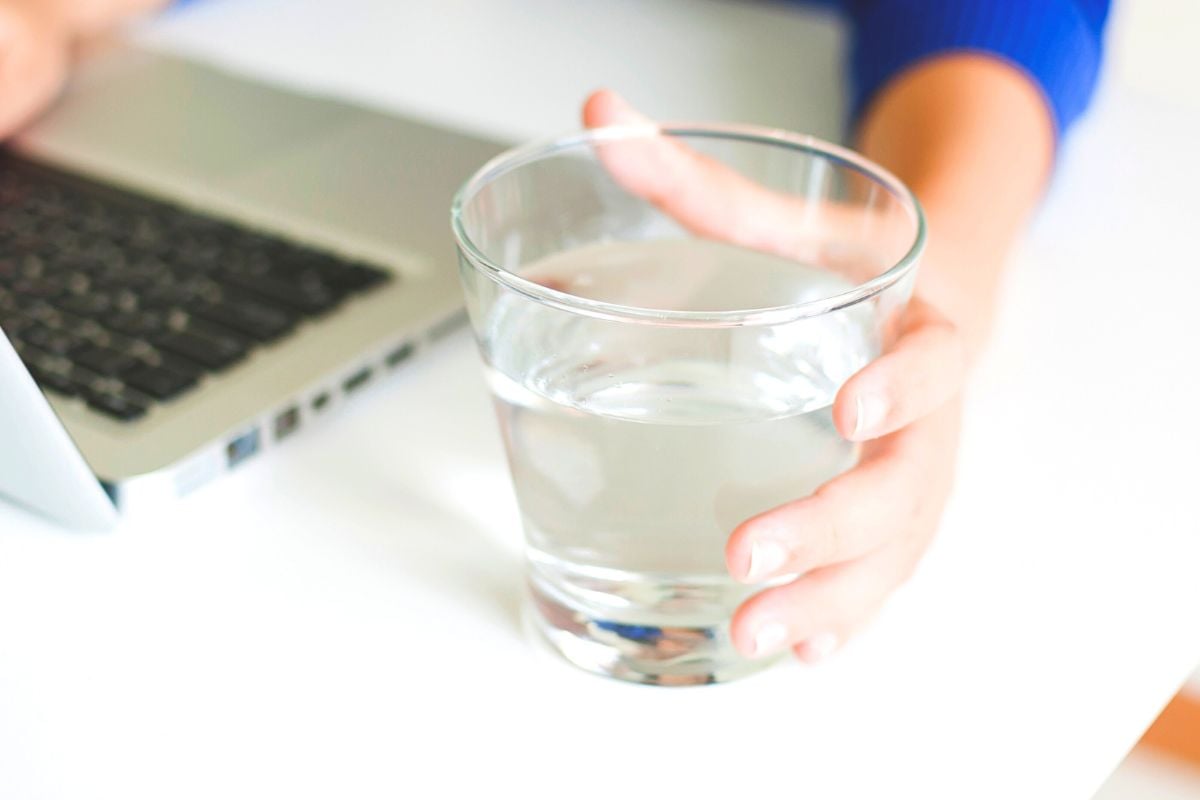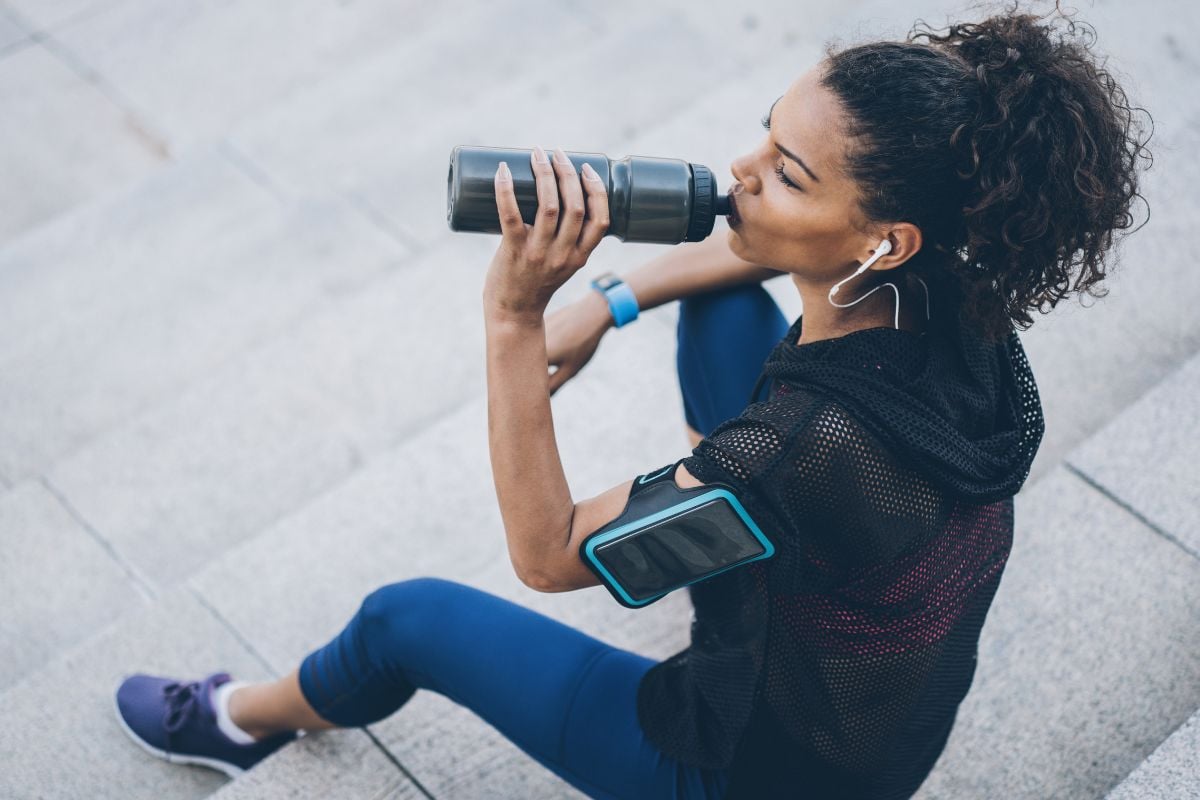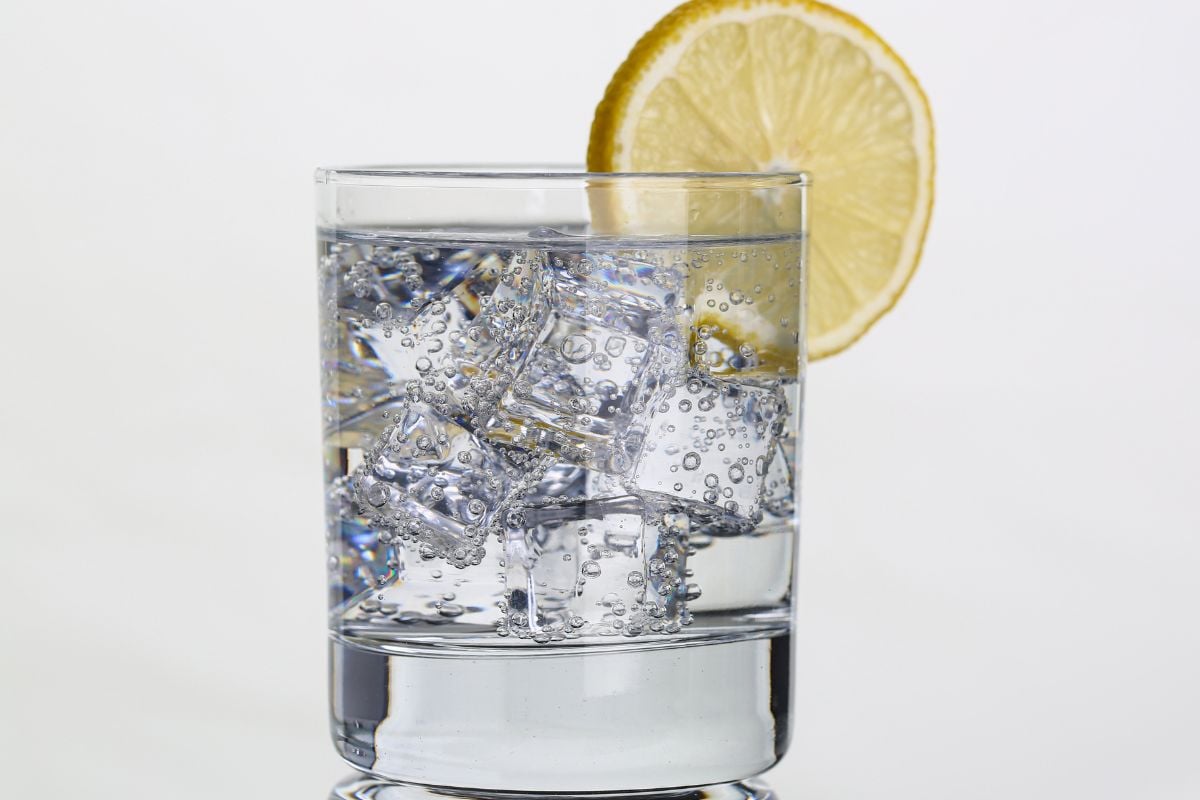Is Vitamin Water Safe To Drink?

Proper hydration is often touted as the cornerstone of good health – and for a good reason. Our bodies are composed largely of water, and ensuring we maintain adequate hydration levels is essential for optimal functioning.
In recent years, there has been a noticeable surge in the popularity of vitamin-infused water. These beverages promise not only hydration but also an added boost of vitamins and minerals, purportedly enhancing their health benefits. One prominent player in this market is Vitamin Water.
As someone who values maintaining a healthy lifestyle, I wanted to delve deeper into the claims surrounding Vitamin Water. For instance, are the added vitamins and minerals truly beneficial, or is it just clever marketing? Join me as we explore the ingredients of Vitamin Water, assess its potential health impacts, and ultimately determine whether it’s a safe and worthwhile addition to your hydration routine.
Is Vitamin Water Safe To Drink?
As more people jump on the vitamin-infused water trend, it becomes increasingly important to understand the facts behind this beverage. In fact, by delving into the science and scrutinizing the ingredients of Vitamin Water, we can empower ourselves to make informed decisions about whether to incorporate it into our hydration routines. Indeed, in a world inundated with countless beverage options, knowledge truly is power in making choices that align with our health goals.
First, we will learn what claims Vitamin Water makes about its products. Following this, we will discuss some of the benefits as well as hear some of the concerns about Vitamin Water identified by Master Nutrition Therapist Kristen Burkett. With this information, you can be empowered to make the best decision for you and your family.
What Is Vitamin Water?
To begin, let’s do a background check on Vitamin Water. The manufacturer of Vitamin Water is The Coca-Cola Company through its subsidiary, Glacéau. Vitamin Water is a type of flavored water beverage that is infused with added vitamins and minerals, purportedly providing an extra health boost. The ingredients typically include water, sweeteners, flavorings, and various vitamins and minerals such as vitamin C, B vitamins, electrolytes, and sometimes caffeine (source).
Recently, Vitamin Water has gained significant popularity, particularly among health-conscious consumers seeking alternatives to sugary sodas and sports drinks. Its appeal is likely attributed to its flavorful taste, convenience, and the perceived health benefits of added vitamins and minerals.
Additionally, its widespread availability in supermarkets, convenience stores, and online platforms reflects its status as a mainstream beverage choice for many consumers seeking hydration with added nutritional value.

Is Vitamin Water Good For You?
In brief, in my analysis of Vitamin Water, I found both pros and cons to drinking it. Additionally, whether Vitamin Water is “good” for you depends on various factors, including your overall diet, nutritional needs, and consumption habits. Let’s explore some of these considerations below.
What Are The Benefits Of Drinking Vitamin Water?
While often overlooked, the taste and appearance of our beverages do play a role in our enjoyment of them. To that effect, there is a variety of delicious Vitamin Water flavors that make it easy to reach your goal of staying hydrated. With that said, what benefits does Vitamin Water have to offer besides vitamins and fun colors?
Hydration
Firstly, Vitamin Water is primarily composed of – you guessed it – water, which is essential for hydration. Consequently, drinking an adequate amount of fluids throughout the day helps maintain bodily functions such as temperature regulation, nutrient transport, and waste removal (source).
In addition, Vitamin Water contains electrolytes, such as sodium and magnesium. These minerals play key roles in fluid balance, nerve function, muscle contractions, and other physiological processes (source). I discuss this more in my blog post Is Smart Water Safe? Naturally, replenishing electrolytes lost through sweating during physical activity can really help the body maintain an optimal level of hydration. Therefore, for individuals who find plain water unappealing, flavored beverages, like Vitamin Water, can be a more enticing option. As a result, the pleasant taste may encourage people to drink more fluids, thereby improving their hydration status.
RO Filtered Water
Next, I like the fact that Vitamin Water is made with reverse osmosis water rather than undisclosed “purified water.” In fact, reverse osmosis (RO) stands out as a highly effective method for producing clean drinking water. More specifically, RO filtration uses a semi-permeable membrane to remove a wide range of contaminants, including heavy metals, dissolved solids, and other contaminants. On the other hand, RO systems also remove beneficial minerals, but this is addressed by the addition of minerals such as electrolytes afterward.
So, you can rest assured that Vitamin Water is free of many of the most concerning contaminants. But are there other factors to think about? Continue reading to hear about potential downsides.

Does Vitamin Water Have Side Effects?
While these beverages may seem like a convenient way to hydrate and obtain certain nutrients, there are potential downsides to take into consideration. To delve deeper into these concerns, I sought the perspective of my friend, a Master Nutritionist Kristen Burkett. Together, we explored the following aspects:
- added sugars
- the source of vitamins
- the presence of artificial ingredients
- undisclosed flavors
- GMO ingredients, and
- the environmental implications of packaging.
By examining these factors, we aim to provide a comprehensive understanding of the potential drawbacks associated with consuming Vitamin Water regularly.
Concern 1: Added sugar
To start, many varieties of Vitamin Water contain significant amounts of added cane sugar and crystalline fructose. For example, a 20 oz bottle of Vitamin Water flavors contains about 100 calories and 26-27 grams of sugar (source). Kristen Burkett noted that this is more than the recommended total sugar intake per day for women by the American Heart Association which is 25g (source). In other words, if you aim to consume sugar in moderation, consuming just one bottle of Vitamin Water automatically puts you in the red zone for the day.
Now, is consuming too much sugar really that bad for you? According to Kristen, excessive added sugar intake can contribute to an array of health problems including cardiovascular disease, type 2 diabetes, metabolic syndrome, to name a few (source). Furthermore, she states “excess sugar in the form of fructose specifically may increase blood cholesterol, triglycerides, blood pressure, insulin resistance, and fatty liver disease.”
In addition, the sugar content also makes it a high-calorie beverage which can lead to weight gain (source). Please keep this in mind if you consume Vitamin Water during exercise or other weight loss activities.
Ultimately, the takeaway is that the high sugar content in Vitamin Water potentially negates the health benefits of added vitamins. To illustrate further, Vitamin Water contains about 1.3 grams of sugar per oz, which is comparable to other high-sugar sports drinks (source).
And what do you think: does this amount of sugar seem fitting for a healthy drink?

Concern 2: Nutrient Absorption
Although Vitamin Water contains added vitamins and minerals, it’s important to factor in two points.
Point #1
First, Kristen Burkett, a Master Nutritionist, notes that it is possible that the nutrients in Vitamin Water may not be absorbed as efficiently as those obtained from whole foods. More specifically, she states that “the inactive form of many of these synthetic nutrients can be particularly hard to absorb.”
As Harvard Medical points out, there are several everyday foods, such as fruits and vegetables, that would help us reach our nutritional needs. Furthermore, when we consume whole foods for Vitamin C, like strawberries, we also consume fiber and other important nutrients that may help with our overall health. Thus, seeking food from a balanced diet is not only entirely possible but also preferable for the prevention of health problems (source).
Point #2
Second, many of the vitamins present in Vitamin Water are considered “water soluble” vitamins such as Vitamin C and B Vitamins (thiamin, riboflavin, niacin, pantothenic acid, etc.). Unlike fat-soluble vitamins (such as vitamins A, D, E, and K), if we consume more water-soluble vitamins than our bodies need, the excess is eliminated through urine (source). In fact, this study concluded that “the lack of water-soluble vitamins is rare in North America” unless an individual suffers from conditions like alcohol use disorders or malabsorption syndromes. Therefore, it is unlikely that the average person would materially benefit from the vitamins they believe they are adding to their diet. Chances are, many of those vitamins just go out with their pee.
Lastly, acai blueberry pomegranate is a popular variety of Vitamin Water due to its antioxidants. If you are in search of a liquid source of antioxidants, take into consideration the conclusions of this study. The researchers compared the relative amount of antioxidants (free polyphenols) in vitamin-enriched waters with the relative amount of antioxidants in fruit juices. As a result, they discovered that “fruit and berry juices contained, on average, more than eight times the concentration of free polyphenols when compared to vitamin-enriched waters.” I feel that this further illustrates that there are superior choices for vitamin supplementation than Vitamin Water.
Concern 3: Artificial Sweeteners
As you may know, Vitamin Water states that they use artificial sweeteners such as stevia leaf extract (in their zero sugar Vitamin Water). While this does reduce the sugar content of the beverages, it can cause other problems. For instance, Kristen Burkett states that our body is unable to recognize artificial ingredients, placing the burden on our liver to decide how to process these ingredients. She goes on to say,
some studies suggest artificial sweeteners disrupt the body’s ability to regulate blood sugar levels and insulin secretion, can increase cravings for sweet foods, and negatively affect the delicate balance in the gut microbiome.
So, it appears that regardless of the kind of Vitamin Water you choose, there are potential downsides related to the source of its sweetness.

Concern 4: Natural Flavors
Next, the inclusion of “natural flavors” in Vitamin Water products can be misleading, as the term “natural” lacks specific requirements and may encompass synthetic chemicals (source). Moreover, according to Kristen,
many of the Vitamin Water products contain flavors that may have negative health effects. The flavor does not come from actual fruit.
Despite its seemingly wholesome connotation, the term “natural flavors” does not guarantee the absence of synthetic additives. On top of that, Kristen warns that without organic certification, there are no restrictions on the use of preservatives, emulsifiers or solvents in these beverages. In my opinion, this raises concerns about the potential presence of additives that may not align with consumers’ expectations of a natural product.
Concern 5: Genetically Modified Ingredients
Furthermore, due to the lack of labeling regulations on GMO or GMO-derived ingredients, spotting GMO ingredients can be tricky. While not explicitly disclosed, some synthetic nutrients found in these beverages, such as ascorbic acid (vitamin C) or citric acid, can be sourced from GMO crops (source and source). In addition, there is some controversy around the use of citric acid as it is linked to inflammatory reactions (source). Now, you would likely have to consume a significant amount of Vitamin Water to reach levels where GMO ingredients could directly impact your health, but I don’t believe they belong in health beverages.
Not only that, but the implications of consuming GMO ingredients also extend beyond individual health considerations. In my opinion, we should also consider holding broader environmental and ethical discussions about agricultural practices on GMO. To learn more, please read about the environmental impacts of bioengineered crops (source and source).

Concern 6: Plastic Pollution
Speaking of environmental impacts, we can’t overlook the fact that Vitamin Water comes in plastic bottles made from PET plastic (source). While the plastic is likely BPA-free (as is true with other bottled Coca-Cola products), that does not mean it is safe. That is, BPA-free products can still leach toxins and microplastics into your food and beverages because of the use of alternative bisphenols (source). Please know that bisphenols and other toxins used in the production of plastic water bottles (including PET plastic) are potential endocrine disruptors (source). In other words, they can negatively impact your body’s hormone levels.
To learn more about how the use of plastic packaging in bottled beverages can impact not only your health but also the environment, read my post Is Smart Water Safe?. In this blog post, I talk more about the actions of The Coca-Cola Company that impact everyone.
Conclusion: Is Vitamin Water Safe To Drink?
Vitamin Water Uses Excessive Sweeteners, Undisclosed Flavors, Potentially GMO Ingredients, And Water-Soluble Vitamins That May Not Benefit Your Diet. Consuming Water From A Home Water Filtration System Is The Safest, Most Affordable Option.
To sum it up, while Vitamin Water can aid in hydration, it’s not a healthy choice. Plain water remains the most natural and effective way to stay hydrated without added sugars, calories or artificial ingredients. Additionally, consuming a balanced diet rich in fruits, vegetables, and other hydrating foods can further support hydration levels. If you simply love flavored water, consider adding juice from real fruit or adding a splash of organic juice. With the grams of sugar in Vitamin Water, I would advise you to consider it as a treat. Consuming excess amounts could negatively impact your health.
For the cleanest and most convenient water option, I recommend installing a filtration system in your home. Fortunately, there is a wide range of options available to suit various needs. Additionally, my blog post How To Test Your Water Quality At Home provides guidance on assessing the quality of your tap water. Furthermore, my article Best Water Filter System For You offers assistance in navigating through any inquiries you may have while shopping for a filtration system.
To make life easier, you can seek guidance from Clean Water Revival (CWR), who can build filtration systems tailored to your specific water type and requirements. Personally, I utilize Pure Effect water filtration in my own home. I’ve had it third-party tested to confirm its efficacy in removing the contaminants while preserving beneficial minerals. Investing in safe water is undoubtedly one of the most valuable investments for your families’ wellbeing.

Download The Free Guide!
5 Powerful Steps To A Non-Toxic Home
Join our informed consumer community and get our free guide the “5 Powerful Steps To A Non-Toxic Home”.

 Written by
Written by 





Before commenting, please read our Comment Policy.